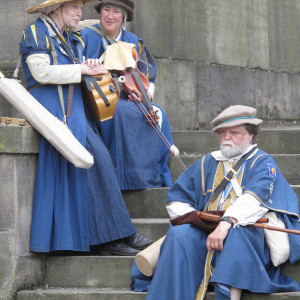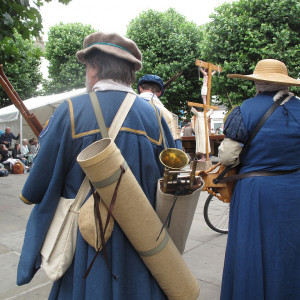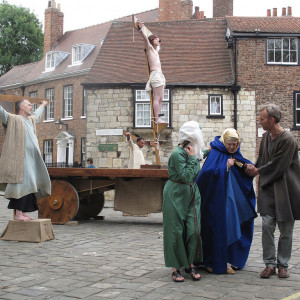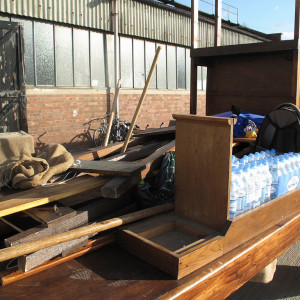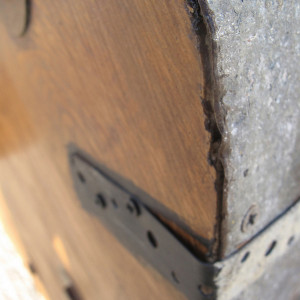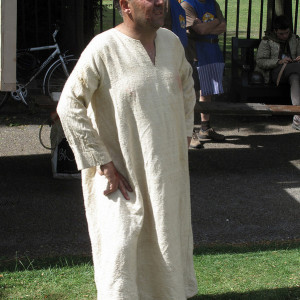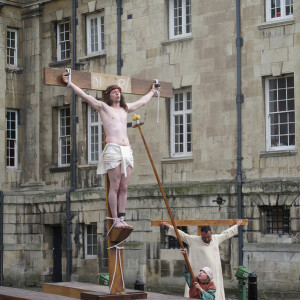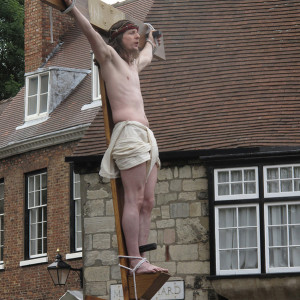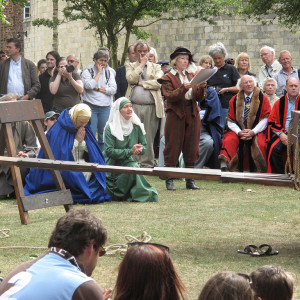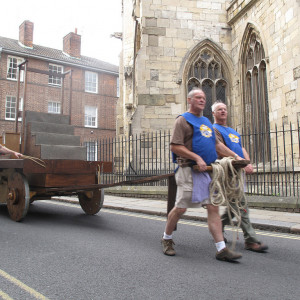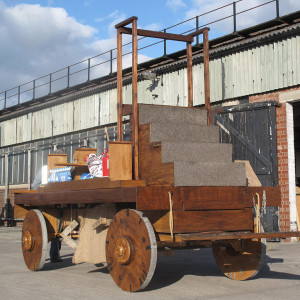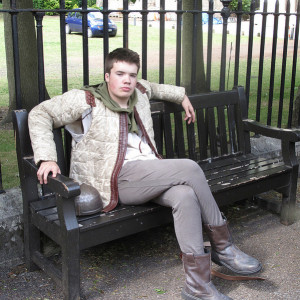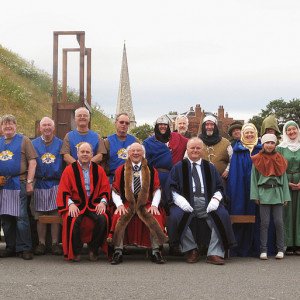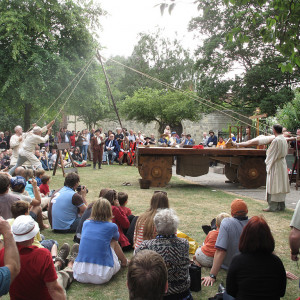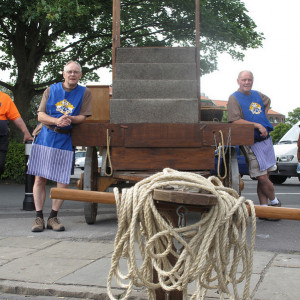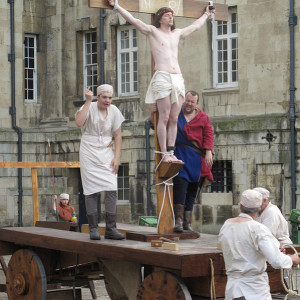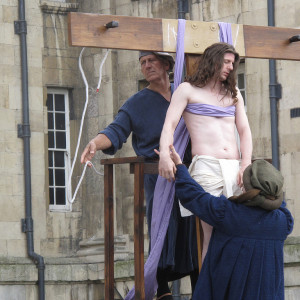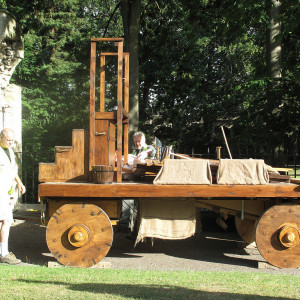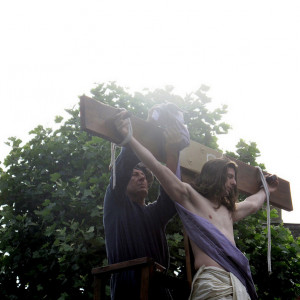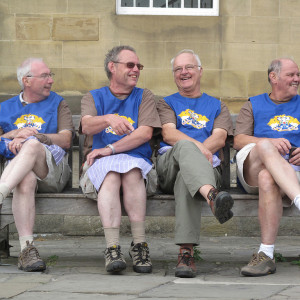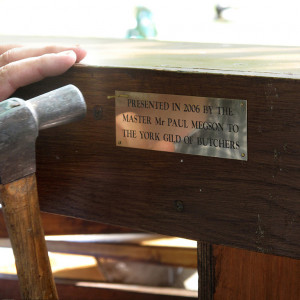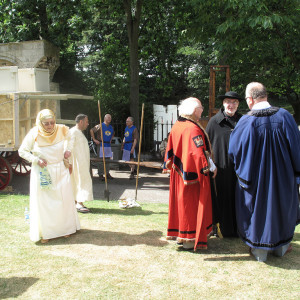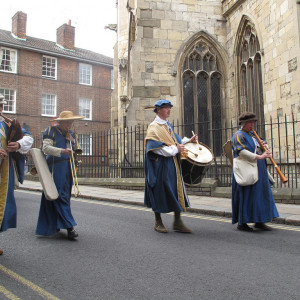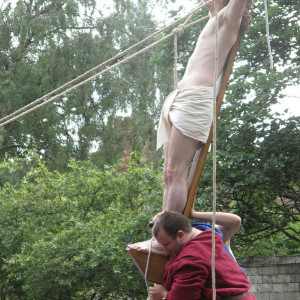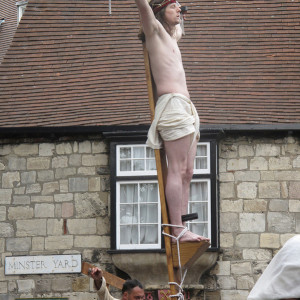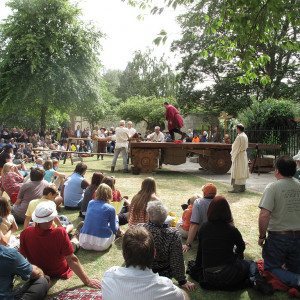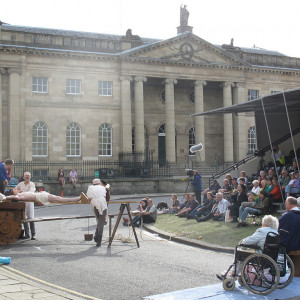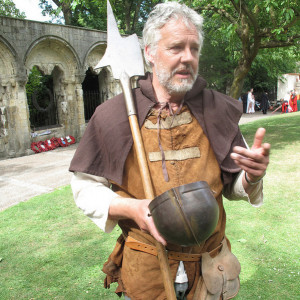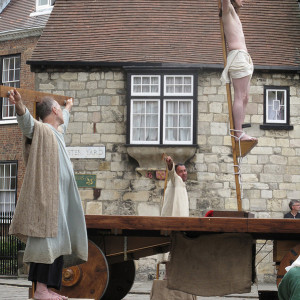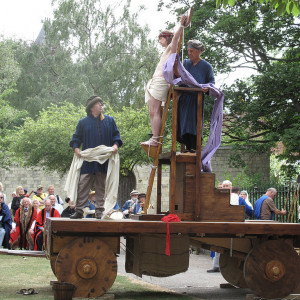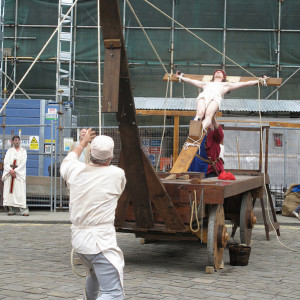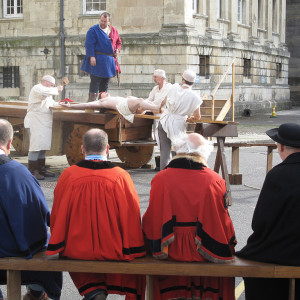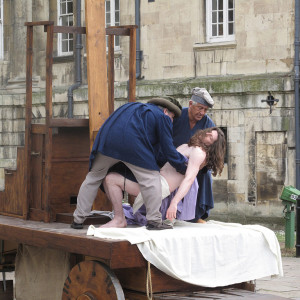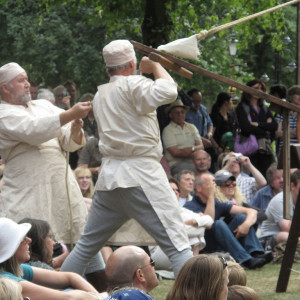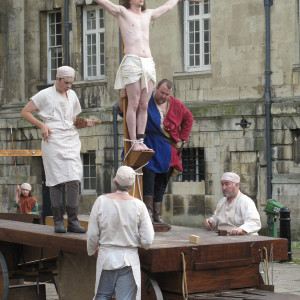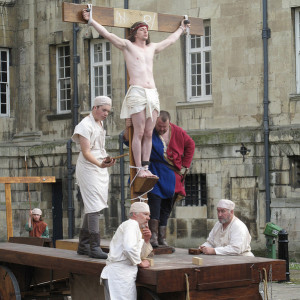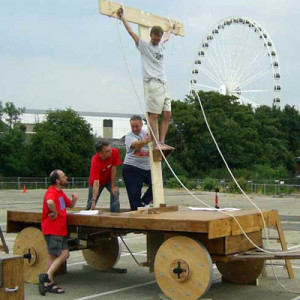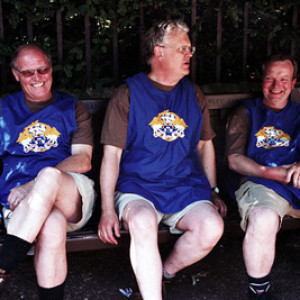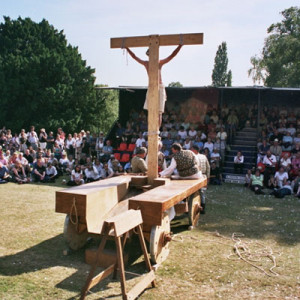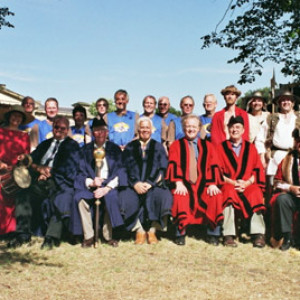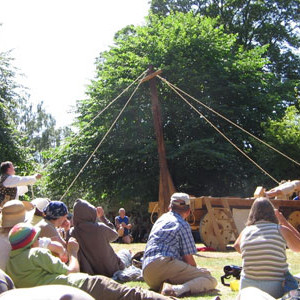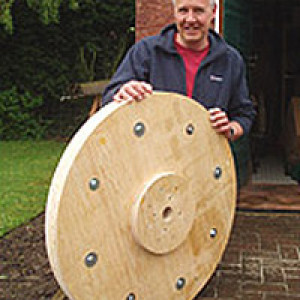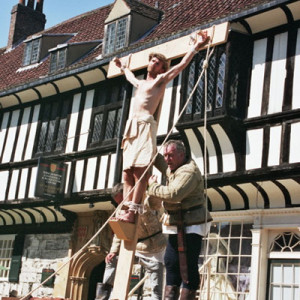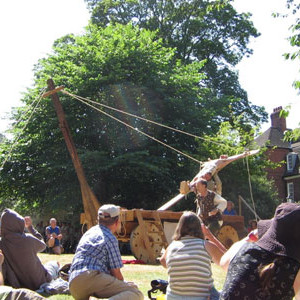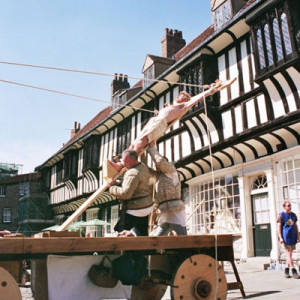The Mystery Plays
History
The Mystery Play (properly in the singular) is, most likely, the final product of the input made by the City and by the craft guilds to York's annual Corpus Christi procession. Originally, the guilds went as a body, carrying torches at the command of the council. The guilds' role possibly developed into a series of religious tableaux on pageants (waggons) and then into a cycle of individual plays about Bible stories, each produced by one guild or by a small group of guilds, under the supervision of the Common Clerk of the City. These dialect plays were written in about 1350, partly in rhyming couplets and making much use of alliteration. The surviving manuscript, held by the British Museum, was compiled for the civic authorities between 1463 and 1477. The earliest record of the play, in 1376, concerns store rent for one of the pageants. A 1415 list, compiled by the clerk, shows a production similar to the surviving cycle, although plays were revised, rewritten and reassigned to different guilds over the years. They were staged regularly until hard times, protestant zeal and the hostility of the authorities brought the tradition to an end in 1569.
Staging
The Plays were performed on the streets at twelve (or more) acting 'stations', starting at the gate of Trinity Priory in Micklegate, passing through Coney Street, Stonegate and Petergate and ending at The Pavement. Porters worked hard all day, pushing the pageants over uneven surfaces. They were paid by the crafts and provided with bread and ale.
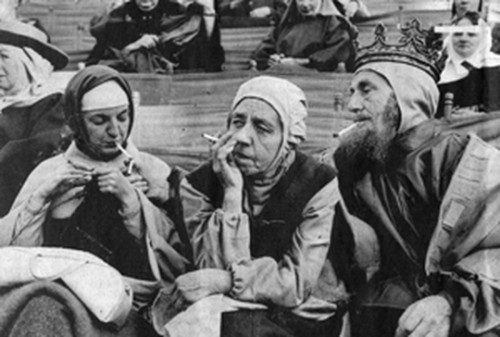 1960 Mystery Players, York © Graham Finlyson/The Guardian
1960 Mystery Players, York © Graham Finlyson/The Guardian
Revival
York's contribution to the 1951 Festival of Britain was an Arts Festival that included a four-hour revival of the Plays, running each evening, selecting the best-known stories. This took place in the Museum Gardens, with the ruined wall of the nave of St. Mary's Abbey as a backdrop and with a large temporary grandstand for the audience. This format was used for further productions every three or four years until 1988. Whilst most of the cast were local volunteers, major roles were often taken by professionals such as Ian MacShane (Lucifer, 1963), and Christopher Timothy and Simon Ward (Christ, 1980 and 1984). York citizens are especially proud of Judi Dench playing the Virgin Mary in 1957 whilst still a York schoolgirl.
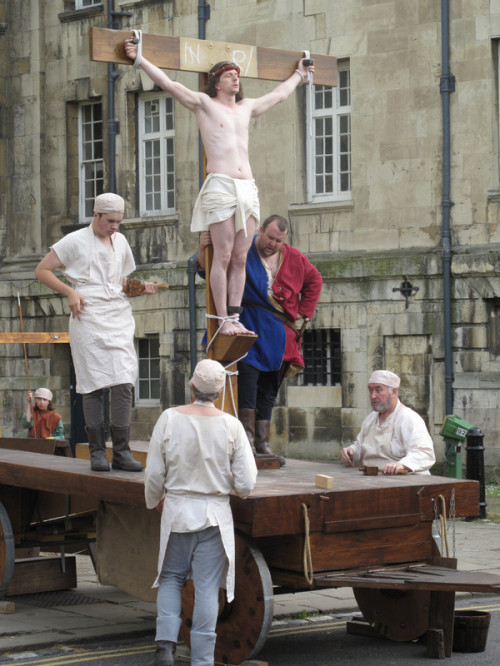 York Mystery Plays 2010, photo © Ed Wright
York Mystery Plays 2010, photo © Ed Wright
The Friends of the Mystery Plays
This organisation came about to retain the spirit of the Plays, to keep scenery and costumes and to build an archive. They continue to support all York productions.
Street Productions
Individual pageants have been demonstrated since the 1951 revival, such as 'Noah's Flood' in 1966. In 1994 and 1998, larger productions of a round of selected plays were taken through the streets, under the auspices of the York Early Music Festival. The 1998 production of twelve plays (Director, Jane Oakshott) involved the Guilds, reuniting them with the plays after a gap of over four hundred years. Subsequently, the York Guilds managed their own production of eleven plays, at five 'stations', in 2002. (Director, Mike Tyler). The final station of this production took the plays back into the Museum Gardens. The Guilds are committed to further productions, and have produced plays in 2006 and 2010. The nest production of the York Mystery Plays will be in Summer 2014.
The Millenium
York Minster authorities undertook a production in the Minster in 2000.
Notes
- A full Mediaeval English text is held by the University of Virginia Library. It is available on the web at: http://etext.lib.virginia.edu/toc/modeng/public/AnoYork.html
- For modern comprehension, the version by Richard Beadle (1982) 'The York Plays', York Mediaeval Texts, 2nd series, published by E. Arnold, London, is frequently used.
- It should be noted that no one body 'owns' the plays and they may be produced by any party.
- A complete cycle with four stations was done in Toronto in 1998, lasting from 6:00 a.m. to midnight.
Photographs
A selection of images from the York Butchers Gild of past performances of the Mystery Plays:
- The York Mystery Plays 2014 [On Flickr] under The Master David R. Clapham
- The York Mystery Plays 2010 [On Flickr] under The Master S. R. Ballard

